If there is one thing the diverse set of communities Ecosia plants trees with have in common, it’s this: only the elders still remember the lush forests their villages were once filled with.
Think about it.
When you look around your city or your town, would you be able to tell how much greener the landscapes used to be?
Saving and restoring the world’s forests depends on our ability to revive them within ourselves. Through the memories of our elders, but also through a renewed understanding of how we all depend on forests for our survival.
Restoring the bond between people and the forest is Saydou Kalaga’s mission in life. Along with Kristoff Leue, Saydou is the director of Hommes et Terre, Ecosia’s partner organization in Burkina Faso.
Saydou and Kristoff are also the producers of The Forest of Djibril, a fictional movie entirely produced with and in the very communities who have planted close to 12 million trees in Burkina Faso, thanks to your searches.
The film tells the story of Djibril, a boy desperate to find the magical forest his grandfather has been telling him about over the years. As in a fever dream, Djibril sets off to find the forest which is, of course, long gone. So is the rain, clean drinking water and the trees that once provided his community with food, medicine and shelter.
In a way, the film tells the story of Saydou, who first heard about the forest from his grandmother. It echoes the story of about 2 billion people around the world who directly depend on forests for their livelihood and who stand to lose the most as a result of the devastating state of the world’s forests.
In this interview Saydou and Kristoff told me about how they filmed The Forest of Djibril.
This interview has been edited for length and clarity.

Why did you make this film?
From the beginning of our tree-planting adventure, we have always invested in the power of storytelling. To convince people, you have to visually show them what you are aiming for, you have to educate them in the topics you are trying to spread.
It starts with our work on the ground, by making big canvases that show the communities how to dig half moons, how to take care of tree saplings or how to work together as a village. Storytelling works because people can better imagine themselves in the same situation and because it makes success more tangible.
Each year, we invite all the villages we work with to a General Assembly in Ouagadougou, the capital of Burkina Faso. During that event we show them before and after footage of their own land and we show them drone images of the new green areas they have restored with their work.
To give you an example of a technique that works really well, last year we produced short slapstick movies that showed little red and green stick figures. The red man (l’homme rouge) does everything wrong, such as over-ploughing his land, whereas the green man (l’homme vert) does everything right. People loved these examples as they helped them imagine otherwise abstract concepts.
That’s why movie making is part of what we do.
The Forest of Djibril tells a very personal story of your own life, Saydou. Can you say more about this?
Yes, it does indeed. For me, the forests live in the memory of my grandmother. She is one of the last people I know who can vividly remember what it means to be surrounded by a forest, a real forest.
Today, we are losing forests at light speed. A UN estimation says that more than 90% of migrants worldwide come from areas where fertile land is no longer available. Children walk miles everyday to feed their cattle and lack formal education, women walk for hours to find drinking water and men are leaving their families looking for a better life. The rainy season has practically disappeared and when it does rain, it pours, flooding entire villages and destroying their crops.
Hearing my grandmother speak about the forest, how it used to provide our family with everything they needed, kept the forest alive in me, in my imagination and in my heart. Without her stories I would not be dedicating my life to restoring the forest, I would perhaps not even understand the urgency.
We have to educate the younger generations in the value of forests. We have to re-create that bond between people and nature, with the very soil that sustains every kind of life on earth.
We have to revive the forest within us.
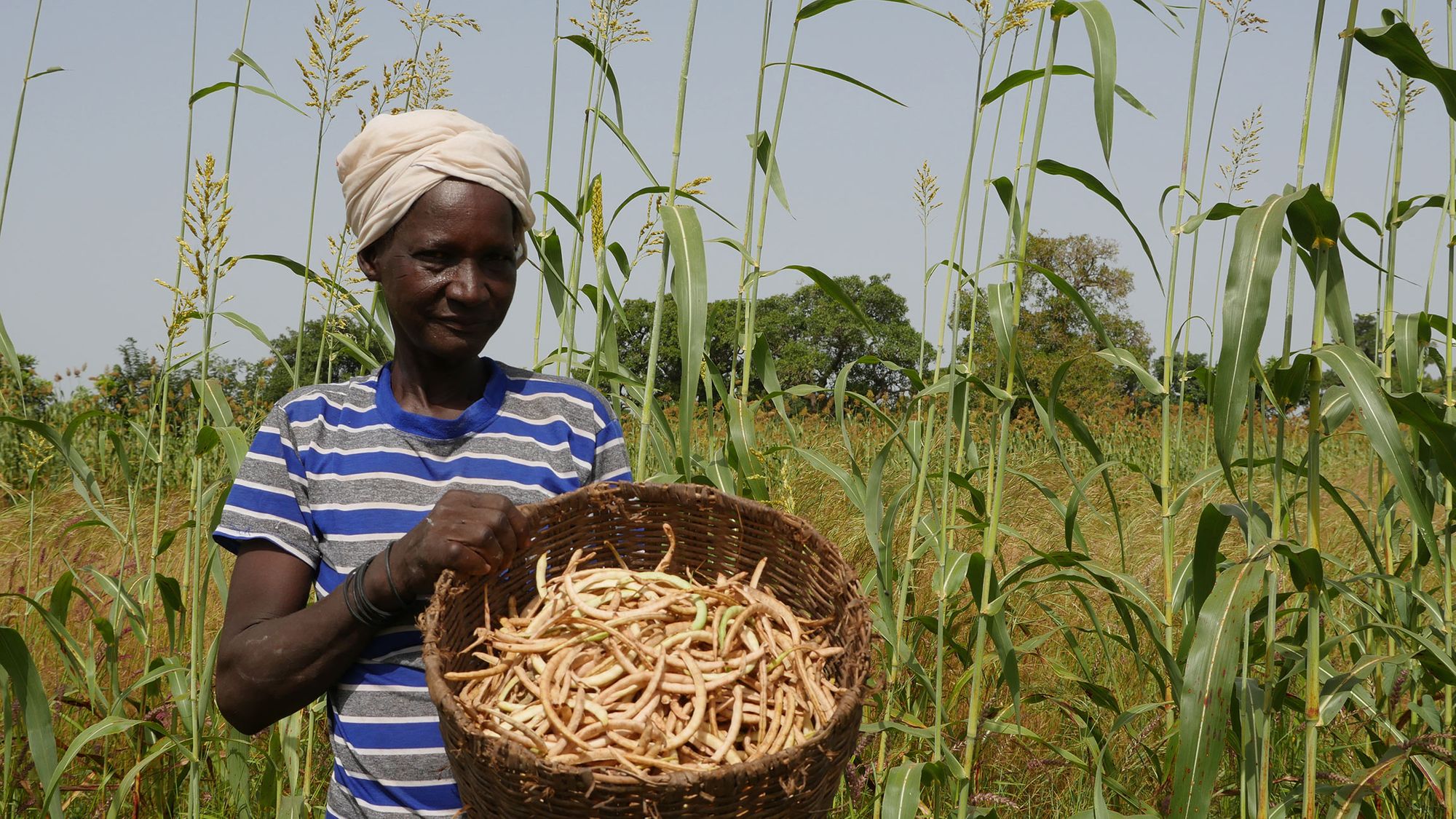

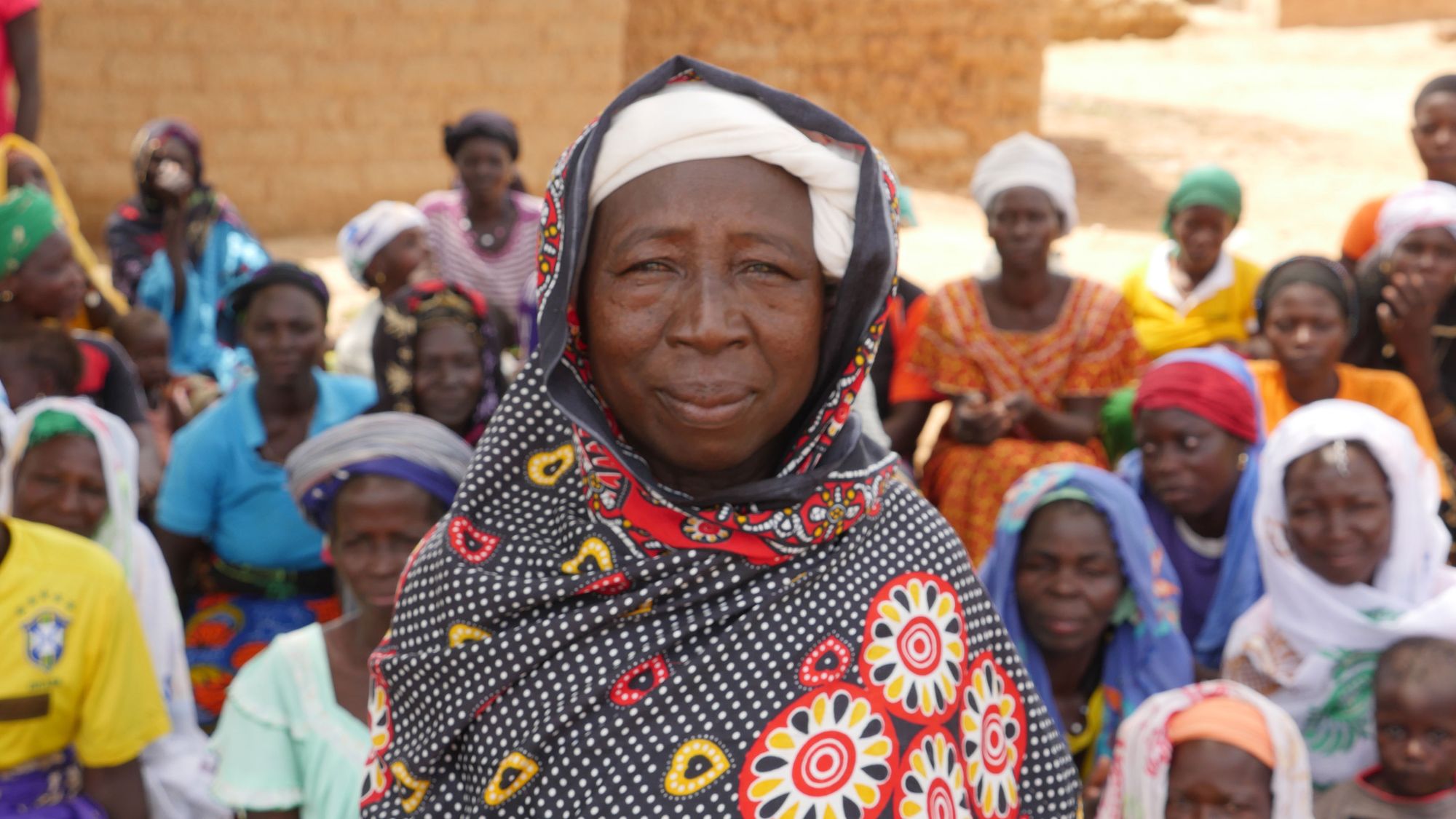
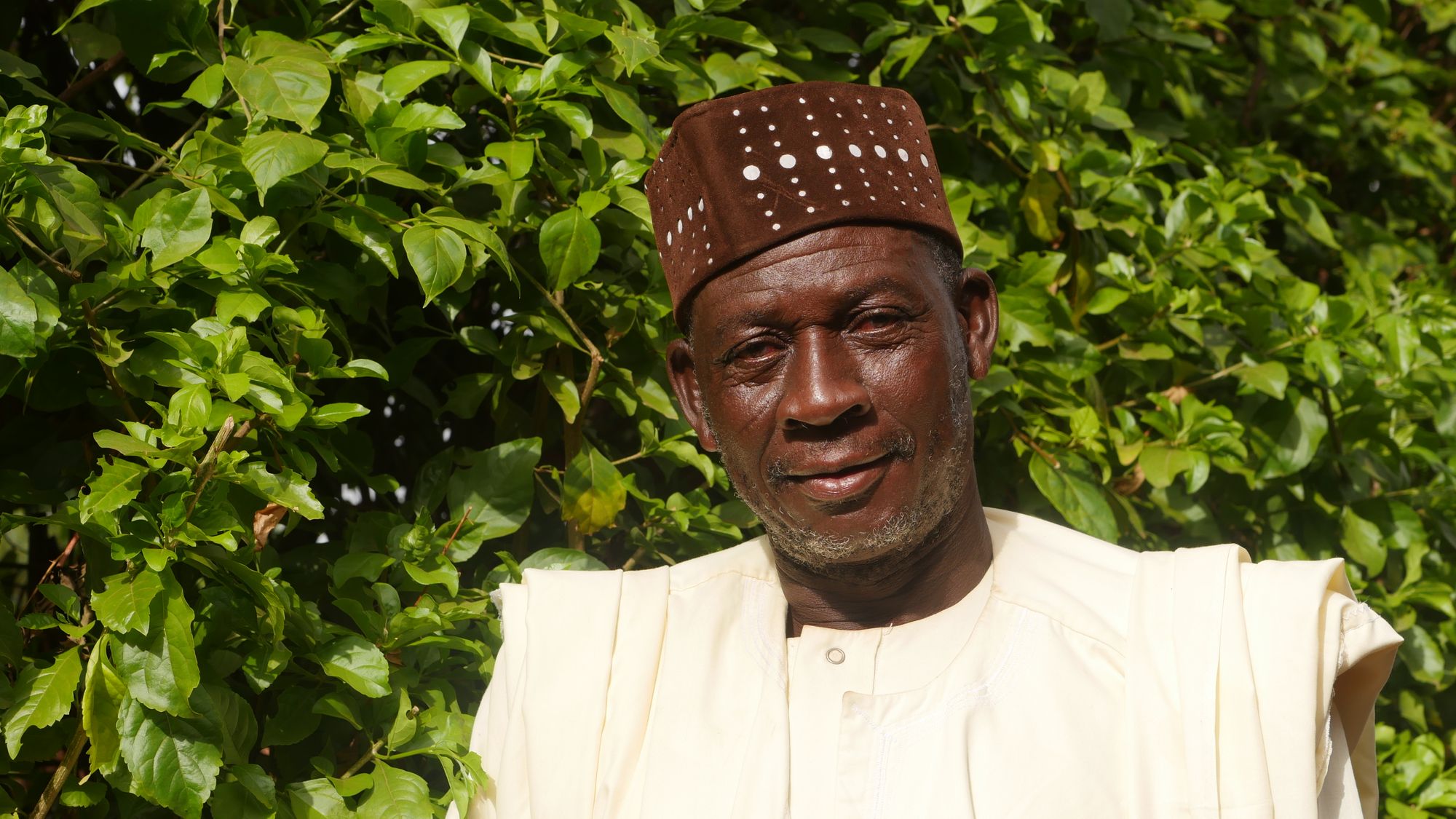
Which is exactly the message of the movie…
Precisely. Djibril, the main character in the movie, is one of many children that live in West Africa today. They have never seen green landscapes or a proper forest. Because they have never seen them, they simply don’t exist in their imagination.
That’s why hearing these stories is so important and why it’s so urgent that we relive the forests in the memories of our elderly. They are the living proof that West Africa, too, was once green. The younger generation needs to believe that the forest did once exist and that it can come back if we work together to restore it.
That’s what we do at Hommes et Terre, also together with Ecosia. The film is the tool we chose to make that vision even clearer to the villages we work with.
Have you had screenings of the movie in the villages you work with in Burkina Faso?
Yes, that’s very important to us. We organize small roadshows for the villages we work with. During the screenings we bring everyone from a certain village together - village officials, women, men, children and even government officials.
People around here don’t see movies very often, especially not about their own history. It was nice to see the very people this film is about (and starring in it!) getting emotional and excited to start planting trees right away.
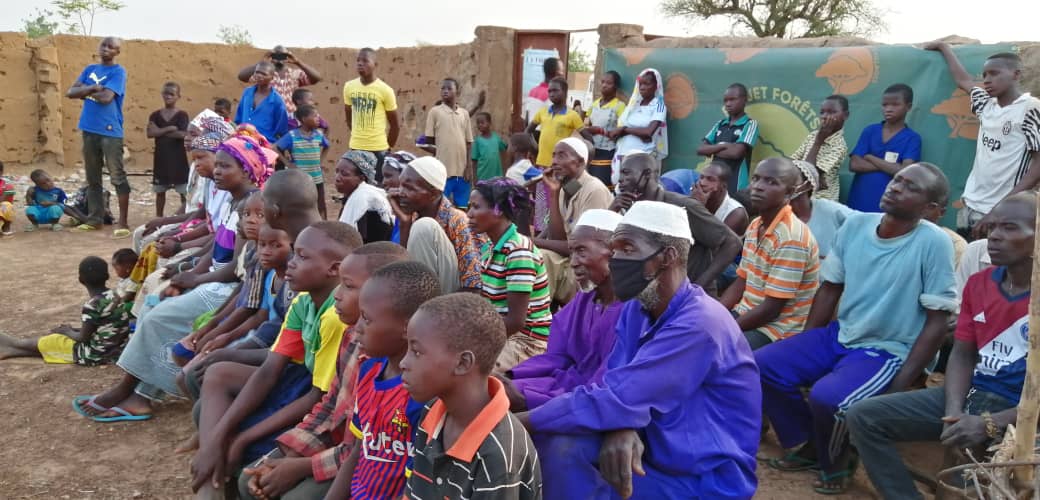
So would you say that your mission is accomplished once the villages have seen the movie?
No, not at all! Our mission will only be accomplished when we can take our children to a real forest and tell them about the endless possibilities it gives us.
We have to dig into the memories of our grandparents and plant a forest in our children’s imagination. Things don’t happen overnight; we have to act today with a vision of a new tomorrow.
This movie is a small step towards creating a tangible vision of a better future. By showing it to as many people as possible, we hope to inspire everyone in the world to search for the forest inside of them. We hope they will ask their parents and grandparents about how their landscapes used to look like.
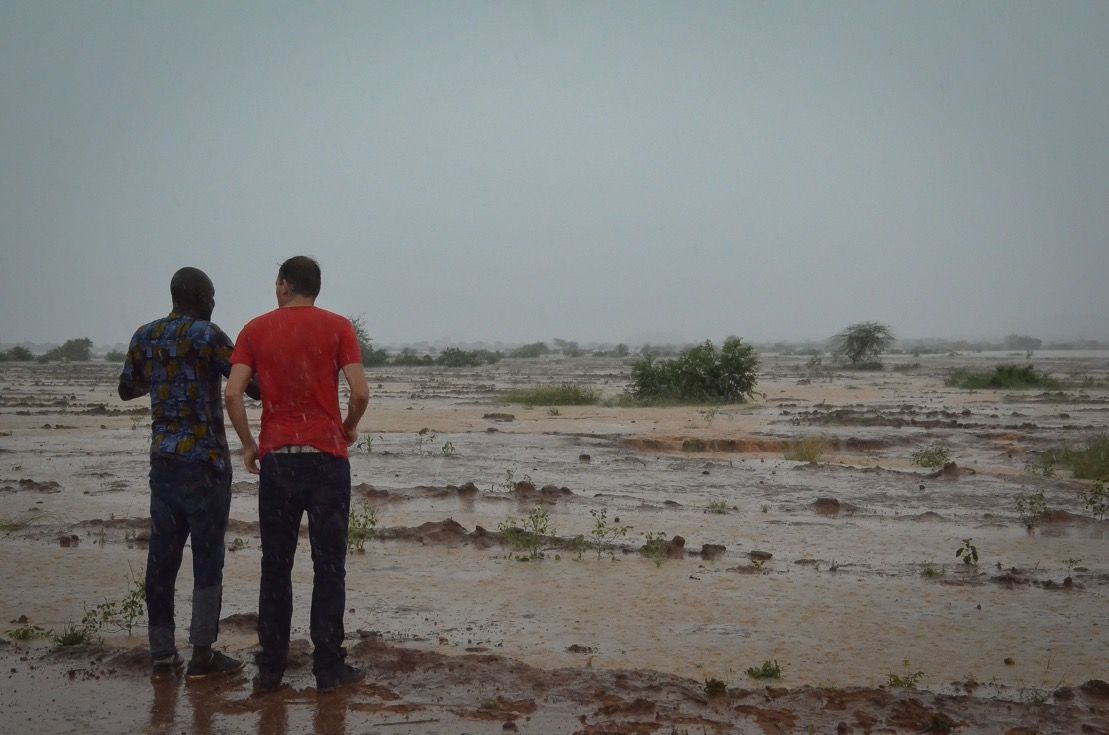
Hommes et Terre is our tree planting partner in Burkina Faso. Due to the success of their tree-planting technique, they have expanded their project to Mali, Senegal and Côte d’Ivoire. To date, Hommes et Terre has already restored about 25.000 ha of land in Western Africa, becoming one of the biggest organizations in land restoration in that area and one of Ecosia’s main partners in the fight against desertification.
Please watch ‘The Forest of Djibril’, spread the word - and find the forest in you.
